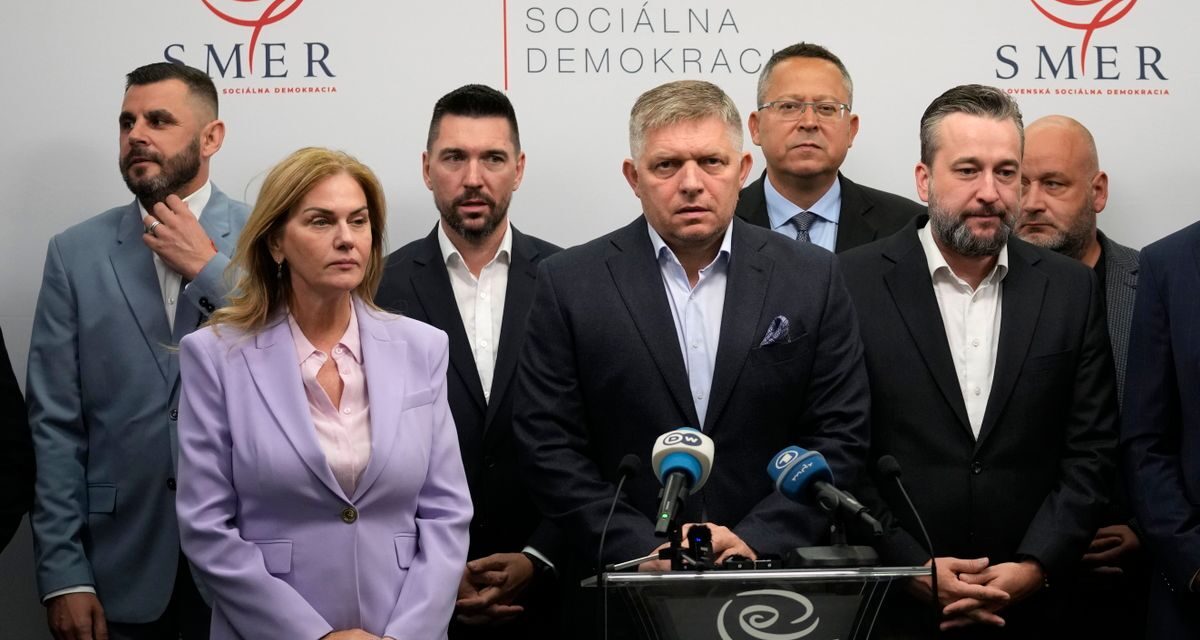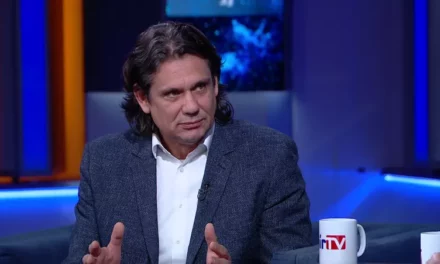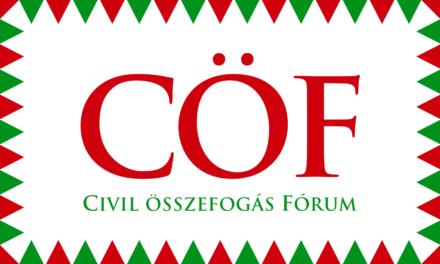A priority for the president of the party that won the Slovak election is the functionality of the V4 and the ability to form a stable government that will last for four years.
Robert Fico's party, Irány (Smer-SD), won the early parliamentary elections held on Saturday, obtaining 22.9 percent of the votes cast, which means they have 42 mandates in the 150-member Bratislava legislature, the Central Election Commission announced at a press conference in Bratislava on Sunday. Head of State Zuzana Caputová announced on social media that she will give Irány a mandate to form a government on Monday.
According to the official results of the elections, a total of 7 parties will enter the new Bratislava legislature.
In second place was the liberal Progressive Slovakia (PS), led by Michal Simecka, which had been out of parliament until now, with 17.9 percent (32 parliamentary mandates), and the third place was won by the Voice (Hlas-SD), led by former Prime Minister Peter Pellegrini, who left Iran. With a result of 14.7 percent, which means 27 parliamentary seats.
The previous strongest government party in Bratislava, the coalition formed by the Simple People and Independent Personalities (OLaNO) movement led by ex-prime minister Igor Matovic and its partners, also made it into the Bratislava parliament (8.8 percent), gaining 16 seats, as well as the Christian Democratic Movement, which was outside the parliament in the last election periods ( KDH) with Milan Majersky at the head, obtaining 6.8 percent, which means 12 mandates for them.
Richard Sulík's liberal Freedom and Solidarity (SaS) movement was also included with 6.3 percent (11 seats), and the Slovak National Party (SNS) led by Andrej Danko with 5.6 percent, they will have 10 representatives in the legislature.
According to the official results, the participation rate in the elections was 68.5 percent nationally, which is the highest figure in the parliamentary elections of the last period.
Reacting to the official final results of the elections, the President of the Direction, Robert Fico, called them "very good" and stated: if they receive a mandate to form a government, they will start negotiations with the other parties, and during these negotiations, their priority will be the functionality of the V4 and the fact that a stable, four they can form a government that works for a year.
He believed that if they get the chance to start government formation negotiations, they will certainly take weeks. Robert Fico pointed out that their statements regarding Ukraine before the elections have not changed, his party is of the position that humanitarian aid should be provided to Ukraine, but they are against the transfer of weapons, they are in favor of peace, and they will do everything to end the tragedy in Ukraine as soon as possible let the negotiations begin.
He said: if they get into government, the foreign policy orientation of the country will remain unchanged, but this does not mean that they will not make their voices heard in those issues concerning, for example, the European Union, in which they do not agree with the current processes.
In response to a journalist's question about the illegal migration situation and border controls, Fico confirmed: if they form a government, one of the first steps will be to adopt a decision to temporarily introduce border controls on the Slovakian-Hungarian border to curb illegal migration.
PS President Michal Simecka, who entered the parliament in second place, responded to the results and said that everything will be done to ensure that Irány cannot form a government.
Peter Pellegrini announced on behalf of his third-placed party, the Voice, that they will sit down to negotiate with everyone from whom they receive a mandate.
The president of OLaNO, which won the fourth place, Igor Matovic, announced that they will definitely join the opposition.
The Christian Democrats ruled out a joint government with Robert Fico, and the Slovak National Party promised information on its ideas later.
The Hungarian party in the highlands, the Alliance, won 4.3 percent of the votes. The president of the Association, Krisztián Forró, responded on his social media page: although historically they received the most votes, this was still not enough to get in, because the participation rate in the districts inhabited by Hungarians was lower than in the northern districts.
The new parliament must meet within 30 days.
MTI
Hungarian Nation












